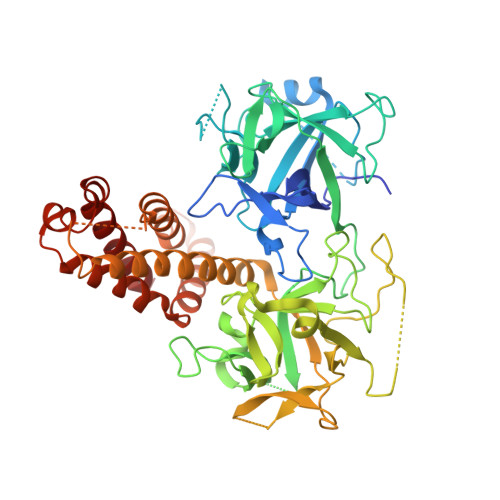Disease mutations in the ryanodine receptor N-terminal region couple to a mobile intersubunit interface.
Kimlicka, L., Lau, K., Tung, C.C., Van Petegem, F.(2013) Nat Commun 4: 1506-1506
- PubMed: 23422674
- DOI: https://doi.org/10.1038/ncomms2501
- Primary Citation of Related Structures:
4I0Y, 4I1E, 4I2S, 4I37, 4I3N, 4I6I, 4I7I, 4I8M, 4I96 - PubMed Abstract:
Ryanodine receptors are large channels that release Ca(2+) from the endoplasmic and sarcoplasmic reticulum. Hundreds of RyR mutations can cause cardiac and skeletal muscle disorders, yet detailed mechanisms explaining their effects have been lacking. Here we compare pseudo-atomic models and propose that channel opening coincides with widening of a cytoplasmic vestibule formed by the N-terminal region, thus altering an interface targeted by 20 disease mutations. We solve crystal structures of several disease mutants that affect intrasubunit domain-domain interfaces. Mutations affecting intrasubunit ionic pairs alter relative domain orientations, and thus couple to surrounding interfaces. Buried disease mutations cause structural changes that also connect to the intersubunit contact area. These results suggest that the intersubunit contact region between N-terminal domains is a prime target for disease mutations, direct or indirect, and we present a model whereby ryanodine receptors and inositol-1,4,5-trisphosphate receptors are activated by altering domain arrangements in the N-terminal region.
- Department of Biochemistry and Molecular Biology, Life Sciences Institute, University of British Columbia, Vancouver, British Columbia, Canada V6T 1Z3.
Organizational Affiliation:

















